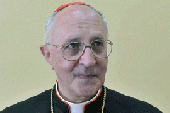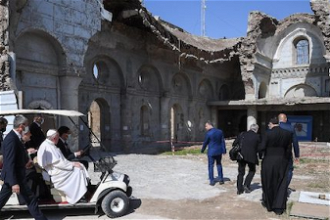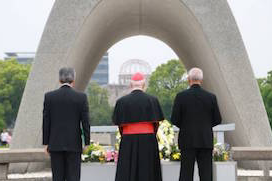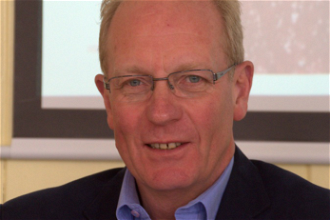Pope's envoy reports on mission to Iraq

Cardinal Filoni
Cardinal Fernando Filoni, Prefect of the Congregation for the Evangelization of Peoples, who visited Iraq as personal envoy of Pope Francis, met the Holy Father on Friday to report on his mission.
In an interview with Fides, Cardinal Filoni said that during his visit he met Christians who had escaped from Mosul and the Nineveh Plain. They had been uprooted from their homes, from their daily lives, and thrown into an unpredictable situation, he said, living from from one day to the next, without a home, without clothes, without the bare necessities one takes for granted, such as water for washing, in temperatures of 47 degrees. Cardinal Filoni said people were forced to sleep in the streets, in gardens, under trees or plastic covers. The women appeared disorientated. Children were running to and fro. The elderly and the sick were huddled in corners, not knowing whether they could get medical help.
One encounter that struck the Cardinal was with a mother who showed him her three month-old baby girl, saying that while they were fleeing from Mosul, the baby’s gold earrings were removed. The earrings were not in themselves important, the violent act of taking them expressed contempt towards the little ones. Cardinal Filoni said he told the woman: "They have removed the earrings, but the most precious things are still with you: your child and your dignity. This wounded dignity that no one could take away." At this the refugees began to clap.
The Cardinal said he received a warm welcome because although Pope Francis had not been able to go himself, he had sent his personal envoy - not a diplomat - and this was a significant sign that he wanted to share everything with them.
During his visit the Cardinal lived with the people. He said: "I felt privileged compared to them, for the fact of having a room where to sleep and a bit of water to wash my hands. But I shared everything with them. I did not represent myself, but the Holy Father, and this sharing everything with them was a sign of the Pope’s closeness. I visited Christian and Yazidi villages. And then I participated in the life of the local Church. Even the Bishops, priests, religious men and women had to flee and had to find a place where to sleep."
Through the envoy, the Pope wanted to encourage everyone, tell everyone that they have not been forgotten.
The Cardinal said that on his return from from Korea, Pope Francis recognized that the way to stop the unjust aggressor was to be sought in international bodies. The Church is and will always be against war, he said. But these poor people have the right to be defended. They have no weapons, they have been driven out from their homes in a cowardly way, they have not engaged the enemy.
The Cardinal said it was important to stop the flow of weapons and arms to the jihadists.
Cardinal Filoni was Nuncio in Iraq under Saddam Hussein. Asked whether the current crisis was caused by the events of 2003 which put an end was put to that regime, he answered: "Yes and no. On the one hand, the upheaval in the country created many critical situations and suffering has been produced, even if we must never forget that before there was not a calm and ideal situation. On the other hand, more than ten years have gone by. The more we move away from those events, the more one wonders if what is happening today is just the fault of others and of those facts of the past, or if there are other causes. And we need to ask what has been done in all this time, and what could have been done."
The Cardinal said the Yazidis he met asked him to speak about their situation. "The dramatic situations that I have seen and what they are experiencing really makes them the first victims." But, he said there were also Shiites who had to flee their villages. Mandeans and other groups have also been driven out.
Cardinal Filoni spoke with political leaders both in Iraqi Kurdistan and Baghdad during his visit. He said the politicians and bishops described the country (which was only formed in 1920) as a 'mosaic' of presences, cultures, and religions. "Of course if this mosaic remains intact it has its own beauty and a future. But if one begins to remove the tiles, sooner or later everything can fall apart."
Iraq is a country which can only be rebuilt and remain united if space and respect is given to each of the communities and ethnic groups.
The Cardinal pointed out that in the West, some take advantage of the events in Iraq to characterise it as a conflict between Christianity and Islam, but he said that all minority groups were being attacked. Those who are carrying out these terrible actions against minorities do it in the name of an intolerant political-religious ideology, he said.
Source: Fides





















